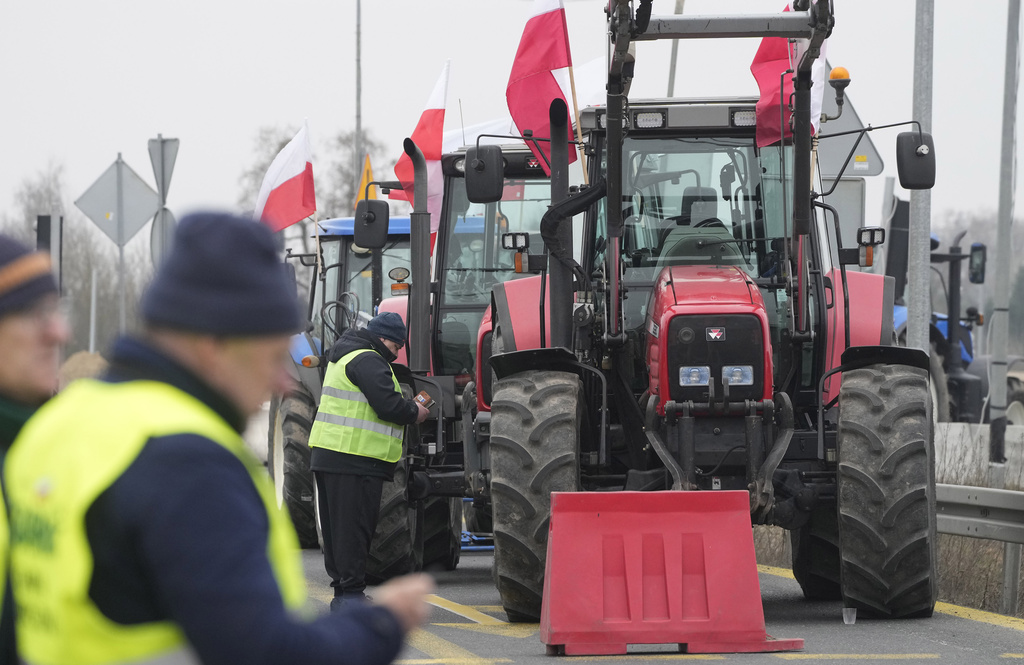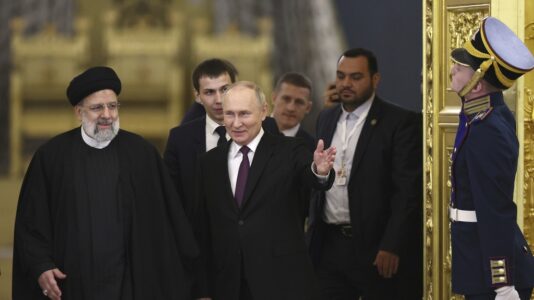Polish agriculture will not avoid competition from Ukraine, as sooner or later the Ukrainians will join the EU, so Poland better get prepared, says agricultural economist professor Wawrzyniec Czubak.
Prof. Czubak from the University of Poznań has told the Polish Press Agency (PAP) that Poland must prepare for the inevitable competition from Ukraine and that blocking roads will not help it to do that. If Poland fails to prepare, it will face a painful confrontation with market realities.
The agricultural economist believes that Poland must seek to enable a value-added approach to its agricultural production and to boost its food processing industry and individual brands. He denied that Ukrainian grain will demolish Polish agriculture, even as farmers contend that will be the exact outcome.
Czubak observes that Ukraine exports mainly corn, wheat and sunflower oil and that Europe is not the traditional market for those products. Before the war, Ukrainian exports went mainly to Asia and North Africa. He is convinced that this will remain the main direction for Ukrainian exports, as long as the Black Sea route is open to Ukraine.
The expert acknowledges that this situation could change if Ukraine joins the EU, but even then, he does not think that Ukrainian produce will flood EU markets. After all, the EU today produces 280 million tons of grain, whereas Ukraine produces just 20 million.
Prof. Czubak assumes Ukraine will be forced to fulfill all the EU norms by the time it joins the European Union and that gives Poland time to prepare for the additional competition. The problem, he says, is that there is no long-term policy on agricultural development in Poland and that farmer protests against Ukrainian imports and the Green Deal are not going to change that on their own.
He said he thinks that there is a lack of measures to create larger, more economically viable farms in favor of direct payments for all. In order to compete with Ukraine, Poland has to concentrate on those areas of production in which it has an advantage.
However, larger farms also translates into fewer farmers — a trend seen across the world where corporations centralize control over the rural landscape. His solution implies that farmers will indeed have to suffer, whereas a few larger farmers or corporations will increasingly gobble up those who lose market share or simply pass away.
The professor says that Poland cannot compete with Ukraine in terms of scale of production, as in the grain sector Ukraine is dominated by huge agri-holdings, which will always be able to produce at a more competitive price. Poland’s chance, argues Czubak, lies in specializing in livestock production that could actually benefit from cheaper grain for its feeding.
Poland can also do more to develop its micro-level food processing in farms and producer groups to strengthen local farmers bargaining power. He also recommends more emphasis on creating and maintaining Polish brands and to use Italy, France and Switzerland as role models in that regard. It is high recognition brands that create added value, he concluded.






